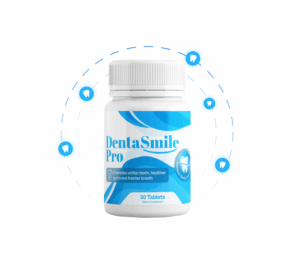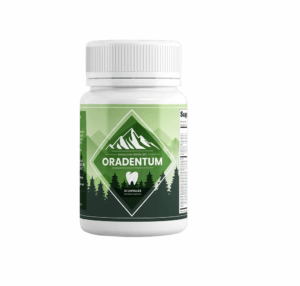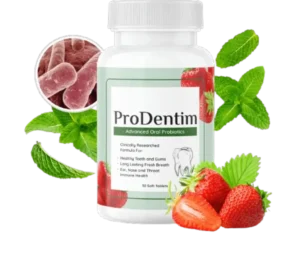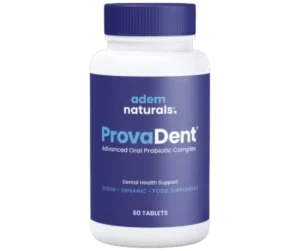Dental Health Tips for Strong Teeth and Healthy Gums
1. Importance of Dental Health for Overall Well-Being
Dental health is more than just having a bright smile – it is directly connected to your overall well-being. Many people still believe that oral hygiene is limited to brushing teeth to avoid cavities, but research shows that poor dental care can lead to serious health issues throughout the body. For example, untreated gum disease is strongly associated with heart disease, diabetes, and even respiratory infections. When bacteria from the mouth enter the bloodstream, they can affect other organs, causing inflammation and long-term complications.
Good oral health also supports digestion and nutrition. Healthy teeth allow you to chew food properly, which is the first step in breaking down nutrients. On the other hand, tooth loss, enamel erosion, and chronic tooth pain can make it difficult to eat a balanced diet, leading to deficiencies that affect energy levels and immunity.
Mental and emotional health are also connected to dental care. People who suffer from bad breath (halitosis), missing teeth, or visible dental problems often experience low self-confidence and social anxiety. A healthy smile, on the other hand, boosts self-esteem and encourages better social interactions.
Moreover, maintaining dental health is a form of preventive medicine. Regular brushing, flossing, and dentist checkups reduce the risk of infections, cavities, and gum disease, avoiding costly treatments in the future. Dental health is not only about aesthetics; it is a key factor in maintaining a healthy body, a strong immune system, and a confident lifestyle.
In summary, dental health plays a crucial role in protecting the body against systemic diseases, improving nutrition, and supporting psychological well-being. Investing in oral hygiene today ensures better health outcomes tomorrow, proving that a healthy mouth truly means a healthier life.
2. Daily Oral Hygiene Routine for Healthy Teeth

A strong daily oral hygiene routine is the foundation of dental health. Brushing your teeth twice a day, flossing regularly, and using mouthwash are essential steps to keep your smile bright and your gums healthy. Neglecting these simple habits allows plaque and bacteria to build up, increasing the risk of cavities, bad breath, and gum disease.
The first step in an effective routine is proper brushing. Dentists recommend using a soft-bristled toothbrush and fluoride toothpaste to remove plaque and protect tooth enamel. Brushing should last at least two minutes, covering all surfaces of the teeth, including the gum line and tongue, where bacteria often accumulate. Many people rush this step, but taking the time ensures better plaque removal and fresher breath.
Flossing is just as important as brushing, yet it is often skipped. Dental floss removes food particles and plaque between teeth where a toothbrush cannot reach. Skipping flossing can lead to gum inflammation (gingivitis) and eventually periodontal disease if left untreated. Adding this simple step once a day can drastically improve gum health and prevent tooth decay.
Mouthwash is another valuable addition to your oral care routine. Antibacterial rinses help kill harmful bacteria, reduce bad breath, and strengthen enamel with fluoride. However, mouthwash should never replace brushing and flossing—it works best as a complement.
Choosing the right products also plays a role. Electric toothbrushes, for example, provide more consistent cleaning compared to manual ones. Likewise, toothpaste options such as whitening, anti-cavity, or sensitivity formulas can address specific dental needs.
Incorporating these habits into your daily life ensures stronger teeth, healthier gums, and long-lasting freshness. A consistent oral hygiene routine is not only about preventing dental problems but also about maintaining confidence and overall health. The more disciplined you are with your oral care, the less likely you are to face costly dental treatments in the future.
3. Nutrition and Dental Health
What you eat directly impacts your dental health. Nutrition plays a critical role in strengthening teeth, protecting gums, and preventing oral diseases such as cavities and enamel erosion. A balanced diet not only benefits your overall body but also helps you maintain a bright smile and fresh breath.
One of the most important nutrients for teeth is calcium, found in milk, cheese, and yogurt. Calcium strengthens tooth enamel and supports jawbone density, reducing the risk of tooth loss as you age. Along with calcium, vitamin D helps the body absorb this mineral more efficiently, making sunlight exposure and vitamin-rich foods essential.
Fruits and vegetables are also powerful allies for oral health. Crunchy foods like apples, carrots, and celery stimulate saliva production, which naturally washes away plaque and neutralizes acids in the mouth. Leafy greens such as spinach and kale provide folic acid, which helps maintain healthy gums and reduces inflammation.
On the other hand, sugar and acidic drinks are among the biggest enemies of dental health. Candy, soda, and energy drinks feed harmful bacteria, producing acids that weaken enamel and cause cavities. Frequent snacking on sugary foods also increases the risk of tooth decay since teeth are exposed to harmful acids for longer periods.
Water is one of the best “foods” for your mouth. Staying hydrated keeps saliva flowing, which is the body’s natural defense against plaque buildup and bad breath. Fluoridated water, in particular, adds an extra layer of protection against cavities.
Finally, limiting alcohol and coffee consumption can prevent staining and dry mouth, while including phosphorus-rich foods such as fish, eggs, and nuts helps repair damaged enamel.
In conclusion, nutrition and dental health go hand in hand. By choosing tooth-friendly foods and avoiding sugar and acids, you can protect your enamel, strengthen your gums, and enjoy a healthier, brighter smile for years to come.
4. Common Dental Problems and Prevention
Even with good oral care habits, many people face common dental problems that affect both health and confidence. The most frequent issues include tooth decay, cavities, gum disease, tooth sensitivity, and bad breath (halitosis). Understanding these problems and learning how to prevent them is essential for maintaining lifelong dental health.
Tooth decay and cavities occur when bacteria feed on sugars from food, producing acids that erode enamel. This process creates holes in the teeth, often leading to pain and infection if untreated. The best prevention is regular brushing with fluoride toothpaste, daily flossing, and reducing sugar intake. Visiting the dentist for professional cleanings also helps detect early signs of decay.
Gum disease, also known as gingivitis in its early stage, begins with red, swollen, or bleeding gums. If untreated, it can progress to periodontitis, a serious condition that damages the bone supporting teeth. Preventing gum disease requires consistent plaque removal, regular dental checkups, and in some cases, professional deep cleaning.
Tooth sensitivity is another common issue, often caused by worn enamel, exposed dentin, or receding gums. It creates discomfort when eating hot, cold, or sweet foods. Using toothpaste for sensitive teeth, avoiding acidic drinks, and seeking dentist advice are effective ways to reduce sensitivity.
Bad breath (halitosis) is usually linked to poor oral hygiene, food particles stuck between teeth, or dry mouth. Flossing, tongue cleaning, and staying hydrated are simple but effective prevention strategies. In persistent cases, halitosis may indicate an underlying dental or medical issue, making a professional evaluation necessary.
In summary, most dental problems are preventable with consistent oral hygiene, balanced nutrition, and professional care. Prevention is always easier, cheaper, and less painful than treatment. By maintaining good habits and visiting the dentist regularly, you can protect your teeth and gums from the most common dental issues.
5. Professional Dental Care and Checkups
While daily oral hygiene at home is essential, professional dental care plays a crucial role in maintaining long-term dental health. Regular visits to the dentist allow early detection of cavities, gum disease, and other oral conditions before they become serious problems. Preventive dentistry saves not only your teeth but also your wallet, since treatments for advanced dental issues are often expensive and uncomfortable.
Dentists recommend scheduling a checkup every six months, although people with gum disease, braces, or higher risk factors may need more frequent visits. During a routine dental exam, the dentist checks for cavities, plaque buildup, early signs of oral cancer, and gum inflammation. These appointments are essential to identify problems that might not cause pain yet but could progress quickly if ignored.
Professional dental cleanings are another major benefit of checkups. Even with good brushing and flossing, plaque and tartar can accumulate in hard-to-reach areas. Dental hygienists use specialized tools to remove this buildup, leaving teeth smoother, brighter, and less prone to future decay. Cleanings also help prevent bad breath and reduce the risk of gum disease.
Preventive treatments such as fluoride applications and dental sealants are especially effective. Fluoride strengthens tooth enamel, making it more resistant to acid attacks, while sealants create a protective coating on the chewing surfaces of molars, preventing cavities in children and adults.
Regular checkups also provide the opportunity for personalized advice. Dentists can recommend specific toothpaste, flossing techniques, or even orthodontic solutions for bite alignment. For patients with chronic conditions like diabetes or dry mouth, tailored dental care becomes even more important.
In conclusion, professional dental care and regular checkups are key to preventing oral health issues, maintaining a confident smile, and ensuring strong teeth throughout life. By combining home care with professional attention, you create the strongest defense against dental problems.
6. Dental Health for Children and Teenagers
Good dental health habits should start early in life. Teaching children how to care for their teeth not only prevents cavities during childhood but also sets the foundation for lifelong oral hygiene. Parents play a crucial role in guiding kids through proper brushing, flossing, and healthy eating habits that protect their teeth and gums.
For young children, primary or “baby teeth” may seem temporary, but they are essential for chewing, speech development, and guiding permanent teeth into the correct position. Neglecting baby teeth can lead to infections, early tooth loss, and misalignment problems later on. Pediatric dentists recommend the first dental visit around the child’s first birthday to monitor development and provide parents with prevention strategies.
As children grow, cavities remain one of the most common dental problems. Sugary snacks, juices, and poor brushing habits put kids at high risk. Regular fluoride treatments and dental sealants are effective preventive measures for children, especially for molars, which are more vulnerable to decay.
During adolescence, new challenges arise. Teenagers often experience orthodontic needs, such as braces or aligners, to correct crooked teeth or bite issues. Proper orthodontic treatment not only improves appearance but also prevents future problems like jaw pain, enamel wear, and gum disease. Teens with braces must be extra careful with their oral hygiene, as food particles easily get trapped, increasing the risk of cavities.
Lifestyle choices also become important during teenage years. Many teens consume more soda, energy drinks, and fast food, which can harm teeth. Others may start habits like smoking or chewing gum with sugar, which negatively impact oral health. Educating teenagers about these risks helps them make better decisions for their smile.
In summary, dental health for children and teenagers is about prevention, guidance, and developing habits that will last a lifetime. With proper care, regular dental visits, and healthy choices, young people can enjoy strong teeth and confident smiles well into adulthood.
7. Dental Health for Adults and Seniors
Dental health needs change over time, and adults face different challenges compared to children. As people age, issues like tooth sensitivity, enamel erosion, gum recession, and missing teeth become more common. Maintaining strong oral hygiene habits, combined with professional care, is essential to protect teeth and gums throughout adulthood and into the senior years.
For many adults, tooth sensitivity is one of the first noticeable problems. It often results from enamel erosion, worn fillings, or exposed dentin near the gum line. Using toothpaste designed for sensitive teeth, avoiding highly acidic foods, and consulting a dentist for treatment can help manage discomfort.
Gum health is another priority for adults. Gum recession and periodontal disease are common, especially for those who neglect flossing or smoke. If untreated, gum disease can lead to tooth loss and even affect systemic health by increasing risks of heart disease and diabetes. Regular dental checkups and professional cleanings are vital to keep gums healthy.
For seniors, tooth loss is a major concern. Fortunately, modern dentistry offers several solutions, including dental implants, dentures, and bridges, which restore functionality and improve appearance. Dental implants are considered the most natural replacement option, as they preserve bone structure and provide long-term stability. Dentures and bridges, while more affordable, also play an important role in maintaining chewing ability and speech.
Aging also increases the risk of dry mouth, often caused by medications or reduced saliva production. Since saliva helps wash away bacteria and protect enamel, seniors with dry mouth are more prone to cavities. Staying hydrated, chewing sugar-free gum, and using dentist-recommended mouth rinses can provide relief.
In conclusion, dental health for adults and seniors requires awareness, prevention, and sometimes restorative treatments. With proper care, it is possible to maintain healthy teeth and gums at any age, ensuring not only a confident smile but also overall well-being in the golden years.
8. Cosmetic Dentistry for a Bright Smile
A confident smile is one of the most powerful tools for personal and professional success. While general dentistry focuses on prevention and treatment, cosmetic dentistry is dedicated to improving the appearance of teeth and gums. From teeth whitening to veneers and bonding, modern cosmetic treatments offer safe and effective ways to achieve a brighter, more attractive smile.
One of the most popular procedures is teeth whitening. Over time, coffee, tea, red wine, and smoking can stain teeth, leaving them dull and discolored. Professional whitening treatments performed by a dentist deliver faster and longer-lasting results compared to over-the-counter kits. Whitening gels, laser whitening, and customized trays can lighten teeth by several shades, restoring a youthful and radiant look.
Dental veneers are another highly effective option. These thin porcelain or composite shells are placed over the front of teeth to correct discoloration, chips, gaps, or minor misalignments. Veneers provide a natural appearance and can last over a decade with proper care. Similarly, dental bonding uses a tooth-colored resin to repair small imperfections, making it a cost-effective and less invasive alternative.
Cosmetic dentistry also includes orthodontic solutions, such as clear aligners, which not only straighten teeth but also enhance facial aesthetics. For patients with missing teeth, dental implants serve both functional and cosmetic purposes, blending seamlessly with natural teeth.
Beyond appearance, cosmetic treatments often improve confidence and emotional well-being. Many patients report feeling more comfortable smiling, speaking, and interacting socially after undergoing these procedures.
In summary, cosmetic dentistry goes beyond vanity—it empowers individuals by improving self-esteem and quality of life. Whether through whitening, veneers, bonding, or advanced orthodontics, the path to a brighter smile is more accessible than ever. With the guidance of a qualified dentist, anyone can achieve a healthy, radiant smile that reflects their true personality.
9. Preventive Dentistry and Long-Term Oral Care
The best way to protect your teeth and gums is through preventive dentistry, which focuses on stopping dental problems before they develop. Instead of waiting for cavities, gum disease, or tooth loss to occur, preventive care combines professional treatments with consistent daily habits to ensure long-term oral health.
One of the most effective preventive treatments is fluoride application. Fluoride strengthens tooth enamel, making it more resistant to acid attacks that cause decay. Many dentists recommend fluoride treatments for both children and adults, especially those prone to cavities. Another powerful option is dental sealants, a protective coating applied to the chewing surfaces of molars. Sealants block food and bacteria from settling in deep grooves, significantly reducing the risk of tooth decay.
Beyond professional care, preventive dentistry emphasizes the importance of daily oral hygiene habits. Brushing twice a day with fluoride toothpaste, flossing, and using antibacterial mouthwash are non-negotiable steps to maintain a healthy smile. Regular dental checkups every six months allow early detection of problems, making treatments less invasive and less expensive.
Lifestyle choices also play a huge role in long-term oral care. Limiting sugar, avoiding smoking, staying hydrated, and maintaining a balanced diet all contribute to stronger teeth and healthier gums. Additionally, protecting your teeth during sports with mouthguards and avoiding harmful habits like nail-biting or chewing ice can prevent unnecessary damage.
For many families, dental insurance or preventive dental plans make it easier to stay consistent with professional checkups and cleanings. Investing in prevention now saves money in the future by avoiding costly procedures such as root canals, implants, or periodontal surgery.
In conclusion, preventive dentistry is the smartest path to lifelong dental health. By combining professional treatments, daily care, and healthy lifestyle choices, you can enjoy strong teeth, fresh breath, and a confident smile well into the future. Prevention is always easier—and more affordable—than cure.
10. Emerging Trends in Dental Health
The field of dental health is constantly evolving, with emerging trends and technologies improving patient care, comfort, and treatment outcomes. Advances in digital dentistry, laser treatments, and teledentistry are transforming how dentists diagnose, treat, and prevent oral health problems. Staying informed about these trends allows patients to benefit from modern solutions for stronger teeth, healthier gums, and a brighter smile.
Digital dentistry is revolutionizing dental practices. From 3D imaging to digital impressions, dentists can now create more accurate treatment plans with faster results. This technology enhances procedures such as crowns, implants, and orthodontic aligners, reducing errors and ensuring better fitting restorations. Patients experience less discomfort and shorter appointment times thanks to these innovations.
Laser dentistry is another major trend. Lasers are used for procedures ranging from gum reshaping to cavity removal, often with less pain, reduced bleeding, and faster recovery times compared to traditional methods. Laser technology also supports early detection of oral diseases, allowing minimally invasive interventions.
Teledentistry has gained popularity, especially for remote consultations and follow-ups. Patients can receive professional advice, review treatment options, and monitor oral health without visiting the clinic, making dental care more accessible and convenient.
Sustainability is also influencing dental products. Eco-friendly oral care items, such as biodegradable toothbrushes, natural toothpaste, and zero-waste packaging, are becoming mainstream, allowing patients to care for their teeth while supporting environmental health.
Finally, the integration of artificial intelligence (AI) is shaping preventive dentistry. AI tools help predict cavity risk, analyze X-rays, and suggest personalized oral care routines based on patient data. These innovations improve diagnosis accuracy, reduce treatment time, and enhance overall patient experience.
In conclusion, emerging trends in dental health are creating a future where dental care is more precise, less invasive, and more environmentally conscious. By embracing digital tools, laser technology, teledentistry, and sustainable products, patients can enjoy advanced oral care that promotes long-term health, confidence, and well-being.







$ 79,00Original price was: $ 79,00.$ 49,00Current price is: $ 49,00.$ 59,00Original price was: $ 59,00.$ 39,00Current price is: $ 39,00.